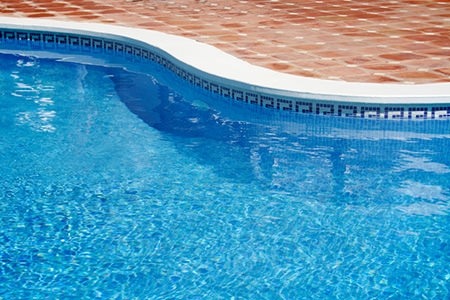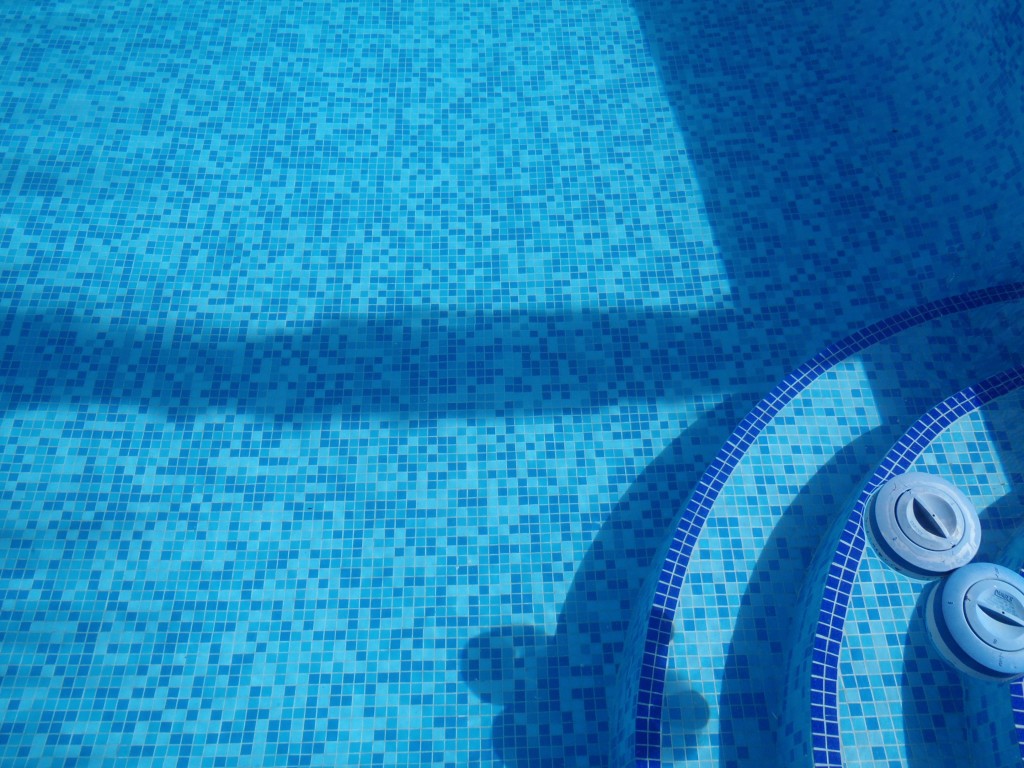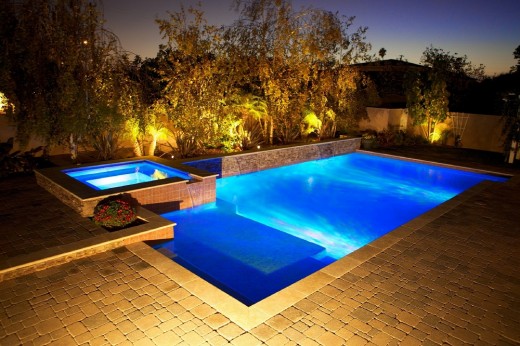Trying to figure out the secret to maintaining a healthy swimming pool? It starts with this post
A swimming pool is an investment that lasts for years and provides endless hours of enjoyment, but it’s important to remember one important fact. A pool is no different from any other investment. Just like cars and appliances, a pool needs proper maintenance to withstand the test of time.
A healthy swimming pool is well maintained in all aspects – from water chemistry and clarity to cleanliness and appearance. And that maintenance is nothing short of essential.
Why?
Because a neglected pool becomes prone to bacterial spread, excelled deterioration and a significantly reduced lifetime — problems that only spell out headaches and often, expensive repairs. So if you want to preserve your backyard oasis and ensure the safety of those who enjoy it, then staying on top of maintenance is essential.
Luckily, we go over everything you need to know about maintaining a healthy swimming pool in this short and sweet post.
Tips For Maintaining A Healthy Swimming Pool
It all starts with healthy pool water
Image via PrimePoolandSpa
Does the water in your swimming pool look the same as the water in the picture above?
If so, you’re already off to great start. If not, rest easy. Clean, clear, and sparkling pool water is far more attainable than you might think.
What makes pool water dirty?
- Unbalanced water/insufficient pool chemicals
- A dirty or broken pool filter
- Pool algae infestations
- Lack of physical maintenance (skimming, vacuuming, scrubbing)
If you’re dealing with any of the above problems, a good pool care schedule can change everything. Having set days to test/treat your water and clean out the pool helps you form consistent and effective pool care habits. Habits that keep your pool clean year round.
Plus,believe it or not, regular maintenance actually saves you a bunch on chemical costs and surprise repairs down the road.
But on the subject of chemicals…
Chemically speaking
All pool owners know that chlorine is essential to keeping a pool clean and germ-free. But, proper pool chemical maintenance goes beyond tossing a few tablets into the water. Chlorine, as a sanitizer, is designed to kill any germs that can potentially get you sick, but the presence of cosmetic products, dirt, and body oils in your pool water can greatly reduce the effectiveness of the pool chemical (additionally altering pH levels in the process). That’s why showering before hopping in the pool is both highly recommended and a great way to reduce foreign chemical buildup.
Of course, there are a few other chemicals /levels you need to test for and balance — from pH to Alkalinity and Calcium Hardness. But you also need to know the how each chemical works, as well as how much is needed.
We explain everything you need to know about pool chemical maintenance in this post:
Inside of the pool
Image via UnderwaterOperations
Keeping your pool walls clean is the one thing you don’t want to do, but absolutely should do as a pool owner.
Sure, it takes time, and you’re probably going to get a little bit dirty, but it’s worth it. Because when your pool walls are loaded up with buildup and grime, your pool uses up way more chemicals. This only ends up costing you more money down the line. And let’s not forget how dirty pool walls and floors practically provide a nesting ground for future algae infestations — a problem no pool owner enjoys dealing with.
So with that said, take those few extra minutes a week to keep the surfaces of your pool clean (using a pool care schedule makes this incredibly easy)
As a test, run your hands along the pool’s inner walls and floor — the surfaces should feel smooth as you run your fingertips over them. But if they feel sticky and slippery to the touch, then it’s time to put the good ole’ pool brush and vacuum to work.
Your pump and filter are your best friends
You can reduce a lot of the physical labor that comes with maintaining a healthy swimming pool, as long as your filter system is doing its job correctly. And we say that because, over time, pool filters get clogged up and slowed down from days upon days worth of filtration.
So every few weeks, inspect your pump and filter to make sure they’re both working optimally. Every now and then you’ll find that your filter media may need to be replaced (when you water continuously stays dirty), or that your pump isn’t running as strong as it used.
But if you run into any problems like those, these resources should be very helpful:
Pool Pump:
How To Troubleshoot Your Pool Pump
Pool Filters:
- How To Replace/Clean Sand Pool Filter
- When To Replace/Clean Cartridge Pool Filter
- How to Replace/Clean a DE Pool Filter
On a closing note
Image via SaltWaterPoolSys
We hope this post was helpful in understanding what it takes to maintain a healthy swimming pool. At the end of the day, it’s really all about staying on top of your duties as a good pool owner — being mindful of everything from chemical balance to keeping track of the last time you scrubbed the walls and vacuumed the floor.
Of course, even if your heart is in the right place, sometimes, simply finding the time to stick to a schedule can be tough. That’s why a reliable swimming pool service is the perfect solution for the overworked and busy pool owner.
But maybe, you have a few more questions that this guide didn’t cover. Look no farther than out Pool Owner Guide.





